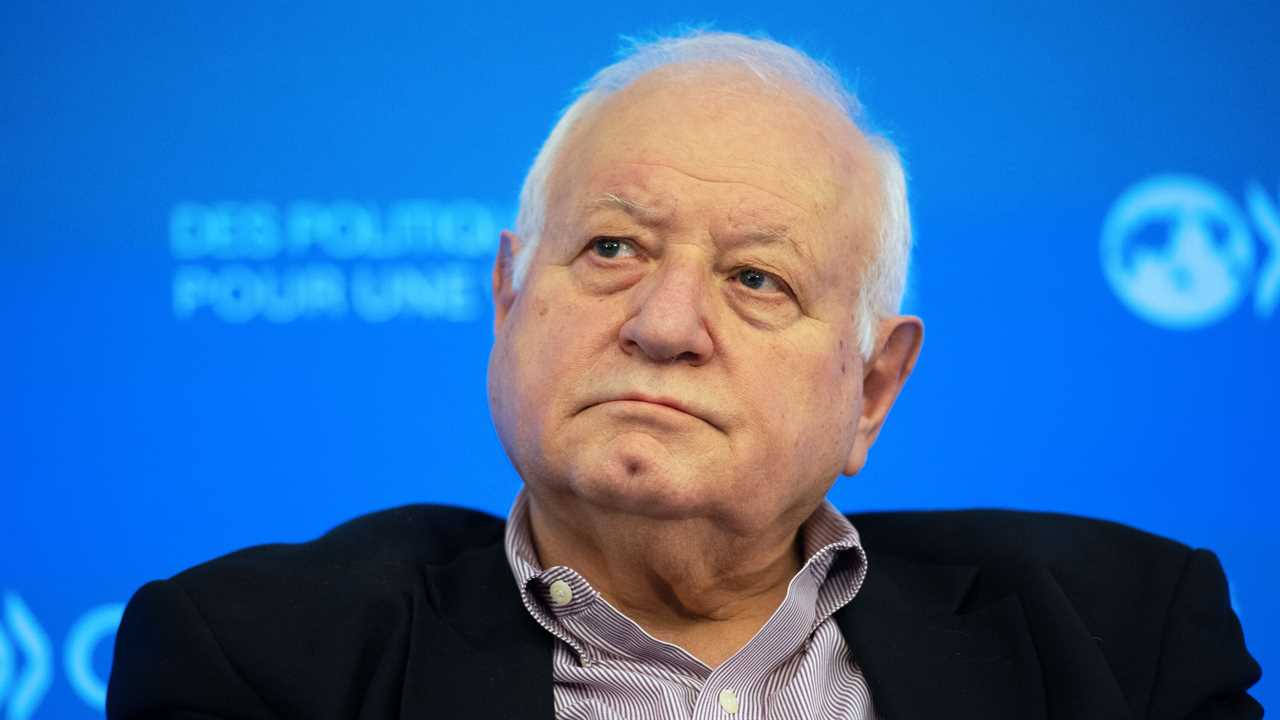
Demetrios Papademetriou, one of the world’s leading immigration scholars and an adviser to numerous governments, international organizations and philanthropies on migration and integration issues, died on Jan. 26 at a hospital in Washington. He was 75.
The cause was a heart attack, said Michelle Mittelstadt, a spokeswoman for the Migration Policy Institute, which Mr. Papademetriou co-founded in 2001.
The institute is a major nonpartisan research organization that provides data and analysis on immigration for countries around the world and explores pressing issues: Does immigration drive down domestic wages? Does “brain drain” hurt the countries that migrants have left? How will climate change affect migration patterns?
“Heck!” Mr. Papademetriou told The New York Times in 2008. “I don’t believe we have a consensus on a single thing in migration. You have to build a knowledge base if you’re going to make progress.”
Mr. Papademetriou understood sooner than many that the surge of immigration to the United States was part of a pattern that presented similar issues to wealthier nations everywhere. As a pioneer in the nascent field, he was one of the first to compare trends and policy contexts across different countries.
He was perhaps best known for his central role in designing what came to be called the “grand bargain” on immigration issues between the United States and Mexico in 2001, when he was director of the international migration policy program at the Carnegie Endowment for International Peace.
He organized and directed a high-level bilateral commission that made a number of recommendations: that the United States expand legal pathways for Mexican migrants, including undocumented immigrants who were already established there; that Mexico improve economic conditions in specific regions to alleviate the pressure on its citizens to leave; and that both governments crack down on migrant smuggling and dangerous border crossings.
Meeting in Washington in early September, President George W. Bush and President Vicente Fox of Mexico agreed to the framework for such an accord and also agreed to finalize a document within a few months. The “grand bargain” was touted as potentially the most significant change in decades in American immigration policy.
But days later, the terrorist attacks of Sept. 11 profoundly reordered American priorities. Immigration was now viewed not as an economic issue but as a matter of security and risk. Public opposition to immigration rose sharply, and any hope for a “grand bargain” collapsed almost immediately.
As it happened, Mr. Papademetriou and Kathleen Newland, an expert in refugee issues, had founded the Migration Policy Institute just days before 9/11, spinning it off from the Carnegie Endowment. Mr. Papademetriou served as president from 2001 to 2014. In 2011, he founded the institute’s sister organization, Migration Policy Institute Europe, in Brussels.
He was the author of roughly two dozen books and scores of scholarly articles on immigration and reintegration issues. He closely advised European Union policymakers during the refugee crises of 2015 and 2016 and was a go-to source for the news media.
Starting in 2008, he convened the institute’s annual Transatlantic Council on Migration, a gathering of public officials, business leaders and scholars from the U.S., Canada, Europe and Australia who explore their shared immigration challenges and seek to sharpen their governments’ responses to those challenges.
Mr. Papademetriou “dedicated his life to understanding the complex nuances of international migration in all its forms,” Andrew Selee, the institute’s president, said in a statement. “He used that knowledge to advance pragmatic, smart immigration and immigrant integration policies that work in the interest of all elements of society” — not just migrants themselves but the countries they were coming to and the ones they were leaving.
Demetrios George Papademetriou was born on Feb. 18, 1946, in Patras, Greece. His father, Giorgos Papademetriou, was a dentist. His mother, Vasiliki (Chrysanthakopoulos) Papademetriou, was a homemaker.
Demetri, as he was called, arrived in New York in 1964 at 18 on a scholarship program that selected Greece’s brightest students for study in the United States.
He received a bachelor’s degree in political science and history from Wilkes College in Wilkes-Barre, Pa., in 1970. He then attended the University of Maryland, where he earned his master’s degree in 1972 and his doctorate in 1976, both in political science. He became a U.S. citizen in 1977.
He went on to hold brief teaching positions at the University of Maryland, the New School for Social Research in New York and elsewhere.
He became director for immigration policy at the Labor Department under President George H.W. Bush and later served as principal adviser on migration to the United States Conference of Catholic Bishops.
His first marriage, to Sigrid Behnke in 1970, ended in divorce in 2012. He later married Margie McHugh, an expert on immigrant integration policy. She survives him, as does a daughter, Natalie Papademetriou; a son, Nicholas; a grandson; and a brother, Andreas.






